University of California San Francisco
Give to UCSF-
-
If You Still Haven’t Had COVID, Are You Immune – Or Just Lucky?
-
Can Lymph Nodes Boost the Success of Cancer Immunotherapy?
A clinical trial showed that, rather than removing lymph nodes, leaving them intact could help immunotherapy activate tumor-fighting T cells in the lymph nodes.
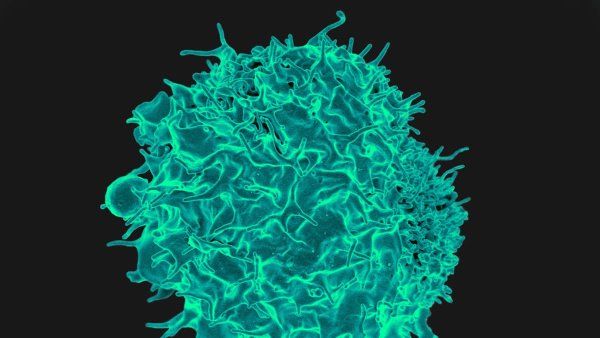
-
Susceptibility to Pathogenic T Cells in Chronic Lung Disease May Have Genetic Basis
Respiratory viral infections pose significant morbidity and mortality to patients with chronic lung diseases like emphysema and COPD, causing exacerbations that drive destruction of normal lung tissue

-
How to Improve COVID Vaccination Rates With Emergency Room Messaging
UCSF researchers found that distributing pro-COVID-19 vaccine information in EDs in English and Spanish increased vaccine acceptance, especially among Latinos and those without primary care physicians.

-
Can We Turn Back Time on Age-Related Diseases?
Emily Goldberg's lab studies what happens during aging to a particular set of immune cells: those embedded in fat tissue. She hypothesizes that changes to these cells during aging could be key to age-related inflammation.

-
The Omicron Effect: Can We Predict the Next Viral Killer?
Angela Phillips, PhD, leads research that could help predict future viruses like COVID and the antibodies we might use to treat them.

-
If Immunity Is Innate, What Impacts Our Ability to Fight Infections?
Balyn Zaro’s lab investigates the cause and consequence of genetic diversity in the immune system, in hopes that her discoveries can lead to better treatments for all patients.
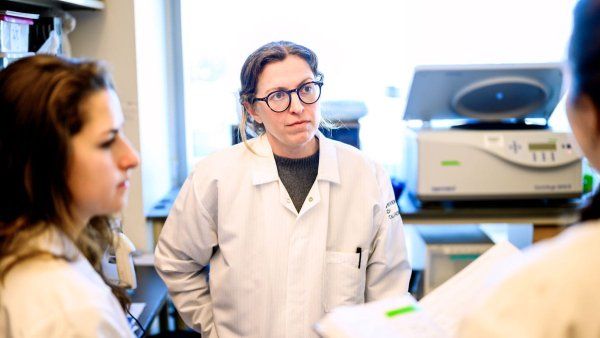
-
Breaking the Code on Dangerous Lung Inflammation
When we inhale an airborne virus, our lung cells take on the role of immune system first responders. Catera Wilder, PhD, studies the molecular details of this response and how it can go awry, causing the body to damage its own tissue and cells.

-
‘Most Transmissible’ COVID Variant Yet Is Spreading in California. What We Know About XBB.1.5
-
Duping Antibodies with a Decoy, Researchers Aim to Prevent Rejection of Transplanted Cells
Researchers have genetically engineered cells to distract antibodies from attacking friendly, but foreign, cells. This could prevent transplants from being rejected.
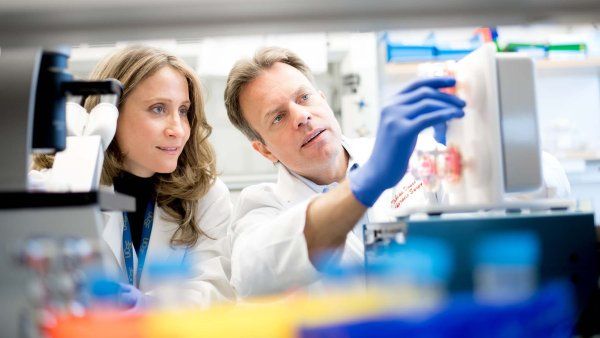
-
Killing Pancreatic Cancer with T Cells that Supercharge Themselves
T-cells can be directed to produce cytokine, a powerful anti-cancer component, when they encounter cancer cells. This holds tremendous promise for cancer immunotherapy.
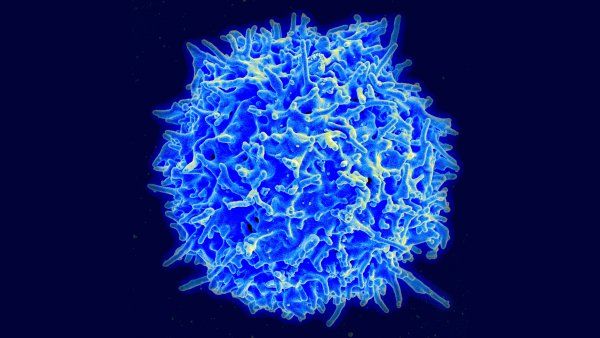
-
Myocarditis in Cancer Patients Is Driven by Specific Immune Cells
Researchers have identified specific immune cells that drive deadly heart inflammation in a small fraction of patients treated with powerful cancer immunotherapy drugs.

-
5 Unusual Covid Symptoms – and What to Do About Them
-
Long COVID Clinics Are Wrestling With How To Treat Their Patients
-
“CAR Pooling” Screens Identify Most Effective Cancer Immunotherapy Cells
A new method of comparing massive numbers of CAR-T cells can determine which is most effective and long-lasting against cancer.
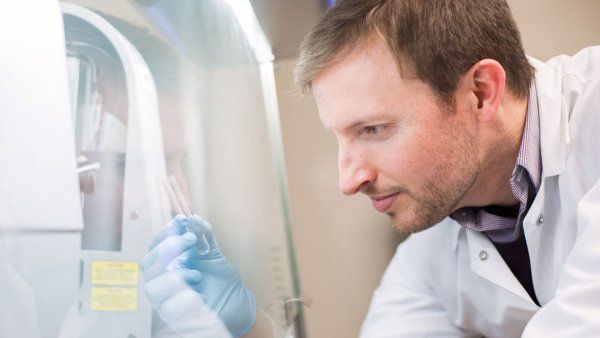
-
UCSF Study Sheds Light on the Reasons Behind Sex Differences in Myocarditis
Immune checkpoint inhibitors (ICIs) used in cancer care can cause myocarditis, a potentially fatal side effect, and it appears that the adverse cardiac effects may disproportionally impact female patients.
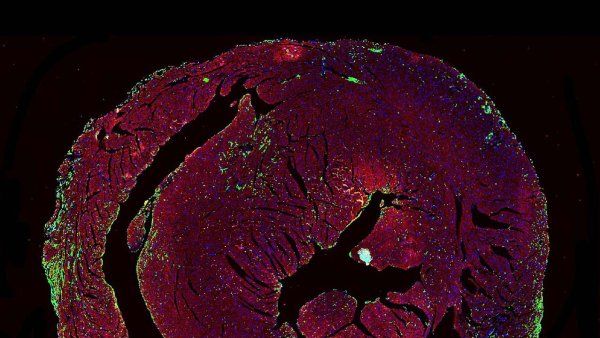
-
Machine Learning Enables Diagnosis of Sepsis, the Elusive Global Killer
A new diagnostic method that applies machine learning to advanced genomics data from both microbe and host to identify and predict sepsis cases was developed by researchers at UCSF, the Chan Zuckerberg Initiative, and CZ Biohub.

-
Omicron’s Evolution and the New Bivalent COVID-19 Booster
Last month new “bivalent” booster vaccines made by Moderna and Pfizer became available that protect against currently circulating Omicron variants as well as earlier strains of the SARS-CoV-2 virus that causes COVID-19. This Q&A features Joel Ernst, MD, a UCSF professor of medicine whose research aims to understand how pathogens evade the immune system.

-
Drug Turns Cancer Gene Into ‘Eat Me’ Flag for Immune System
A new therapy pulls forward a mutated version of the KRAS protein to help the immune system recognize and destroy cancer cells.
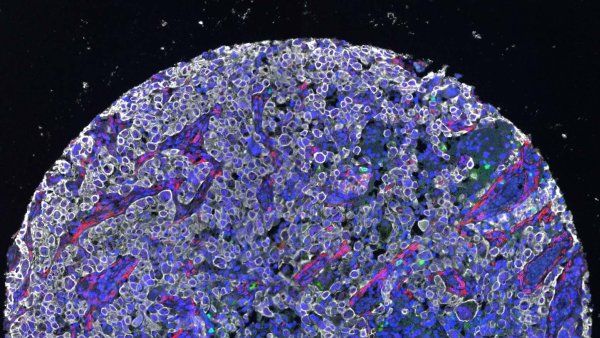
-
Research Reveals Mechanisms at Work in Progression of Pancreatic Cysts to Pancreatic Cancer
UCSF-led research outlines the comprehensive immune landscape and microbiome of pancreatic cysts as they progress from benign cysts to pancreatic cancer. Their findings could reveal the mechanism of neoplastic progression and provide targets for immunotherapy to inhibit progression or treat invasive disease.
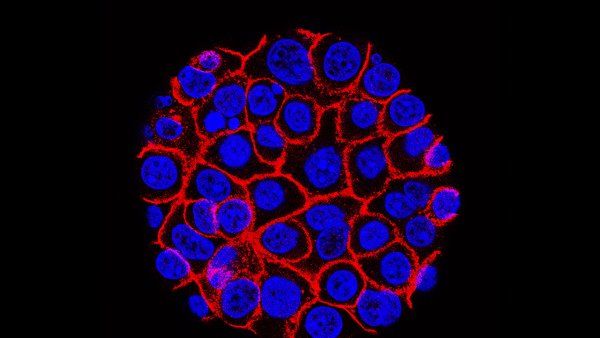
-
A Cellular Engineering Breakthrough: High-Yield CRISPR Without Viral Vectors
A new variation of the CRISPR-Cas9 gene editing system makes it easier to re-engineer massive quantities of cells for therapeutic applications. The approach, developed at Gladstone Institutes and UC San Francisco (UCSF), lets scientists introduce especially long DNA sequences to precise locations in the genomes of cells at remarkably high efficiencies without the viral delivery systems that have traditionally been used to carry DNA into cells.

-
Giving Immunotherapy Cells Resilience to Pass the ‘Stress Test’
T cells used in immunotherapy treatments can get exhausted and shut down by fighting cancer cells and tumors. Using a CRISPR-based edit on these cells’ genomes, researchers at UCSF and Gladstone Institutes have rendered the therapeutic cells more resilient against tumors.
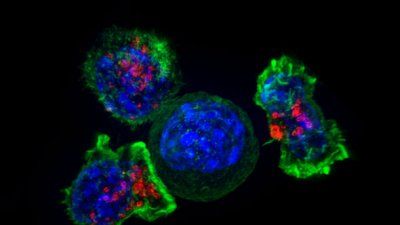
-
Can Monkeypox Spread Through the Air or on Surfaces? Here’s What To Know
-
Have New COVID Variants Changed What We Know About Surface Transmission?
-
Scientists Map Networks of Disease-Associated Immune Genes
A new "subway map" of immune networks connects gene variation to risk for autoimmune disease.

-
In Colitis Patients, Skin Conditions May Originate in the Gut
A new UCSF study reveals how gut inflammation can disrupt not only the digestive system, but also the skin. It’s a tale in which the main players are specialized immune cells and the bacterial communities — called microbiomes — that dwell within the gut and skin.
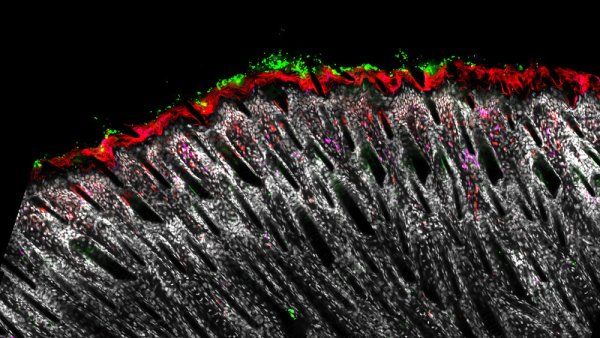
-
What’s Changed and What Hasn’t Since the End of California’s COVID Lockdown
-
FDA Advisors Approve Pfizer, Moderna Vaccines for Young Children
-
Why Do Some People Never Test Positive for COVID, Even After Exposure and Symptoms?